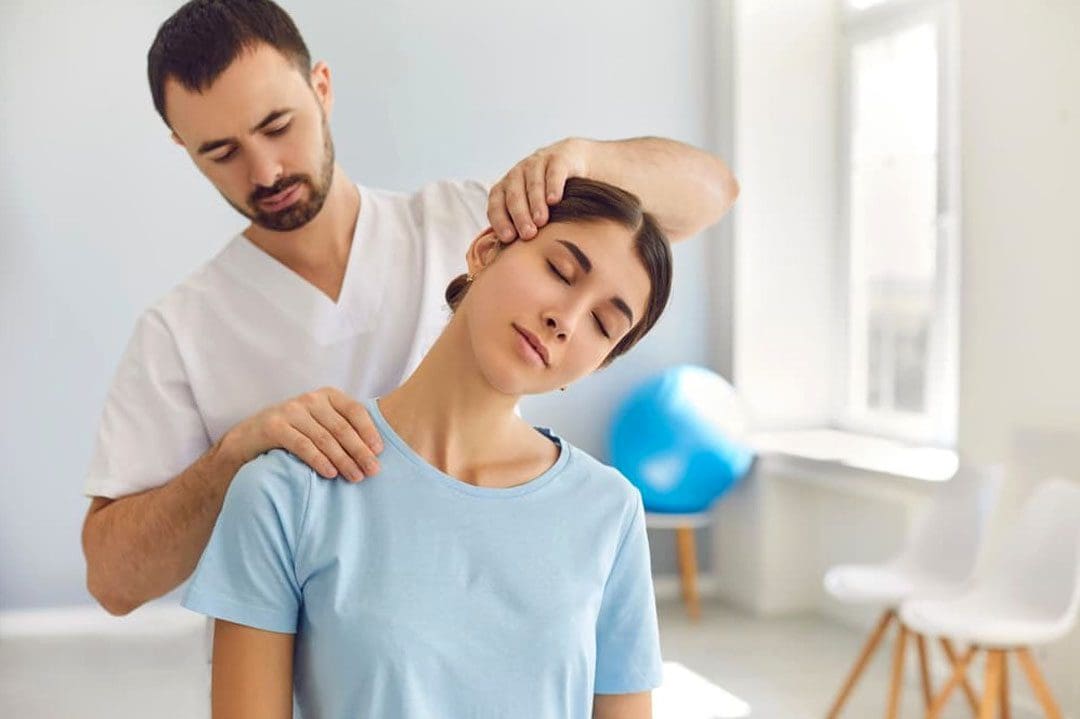
Medication overuse headaches – MOH comes from frequent or excessive use of pain-relieving medications, resulting in daily or near-daily headaches for which the drugs become less and less effective. They are also known as rebound headaches, medication misuse, or drug-induced headaches. It is a common disorder, with around one out of every 100 individuals experiencing these headaches yearly. They can be disabling, causing individuals to be less productive. Injury Medical Chiropractic and Functional Medicine Clinic can assess, diagnose, and manage headaches naturally with massage, adjustments, and decompression.
Table of Contents
Medication Overuse Headaches
The same medications that relieve headache pain can trigger headaches if used too often, triggering an unhealthy cycle. Diagnosis of medication overuse headaches means an individual must experience headaches more than 15 days a month for at least three months while taking pain-relieving and/or antimigraine meds and cannot find other cause/s for their headaches. It is more common in women and individuals with headache disorders, chronic pain conditions, and individuals dealing with depression and anxiety.
Symptoms
Symptoms can vary depending on the type of headache being treated and the medicine used. Common symptoms include:
- They occur every day or nearly every day.
- They usually start when waking up.
- They improve with the medication but then return as it wears off.
- Headache can feel like a dull, tension-type headache or more severe, like a migraine.
Other symptoms can include:
- Sleep problems
- Restlessness
- Difficulty concentrating
- Memory problems
- Constipation
- Irritability
- Neck discomfort and pain symptoms
- Weakness
- Nasal stuffiness and/or Runny nose
- Light sensitivity
- Teary eyes
- Sound sensitivity
- Nausea
- Vomiting
Medicines
Doctors and medical experts don’t know the exact reasons/causes why these headaches occur, and the risk varies depending on the medication. But most medicines have the potential to lead to overuse headaches, including:
Simple Pain Relievers
- Common pain relievers like aspirin and acetaminophen like Tylenol can contribute to the condition. This is especially true if taking more than the recommended dosages.
- Other pain relievers like ibuprofen – Advil, Motrin IB, and naproxen sodium – Aleve has shown to have a low risk of contributing to overuse headaches.
Combination Pain Relievers
- Pain relievers that can be purchased at a store that combines caffeine, aspirin, and acetaminophen – Excedrin has been found to contribute to the condition.
- This group also includes combination prescription medicines that contain butalbital – Butapap, and Lanorinal. Drugs that contain butalbital have a high risk of causing medication overuse headaches.
Migraine Medicines
- Various migraine medicines have been linked with the condition. They include triptans – Imitrex, Zomig, and certain headache meds known as ergots, such as ergotamine – Ergomar. These medicines have a moderate risk of causing headaches.
- The ergot dihydroergotamine – Migranal, Trudhesa have a lower risk of causing headaches.
- A newer group of migraine medicines known as gepants appear not to cause headaches. Gepants include ubrogepant – Ubrelvy and rimegepant – Nurtec ODT.
Opioids
- Opium-derived meds or synthetic compounds have a high risk of causing medication overuse headaches. They include combinations of codeine and acetaminophen.
Prevention and Chiropractic
The following steps can help prevent headaches:
- Follow the label instructions of the medications and the instructions of the doctor.
- Limit any headache medications taken as needed to relieve head pain to no more than two to three days a week.
- Consult with a doctor if there is a need to take medications more than two days a week.
- Contact a doctor if headaches present more than four days a month which could require headache-preventive medication.
- Control and avoid anything that triggers headaches, like stress, dehydration, hunger, certain foods and drinks, and unhealthy sleep.
Chiropractic
Our team utilizes a personalized and combined treatment approach, including understanding the triggers. The team will work to understand each individual’s situation. A treatment plan can consist of the following:
- Therapeutic massage to relax and release tight muscles and increase circulation.
- Spinal manipulation and adjustments to realign the body, improve function and alleviate the stress on the nervous system.
- Non-surgical spinal decompression.
- Health Coaching
- Nutritional recommendations
- Posture retraining, work postures, ergonomics, targeted stretches/exercises, and relaxation techniques.
Chiropractic and Brain Health
References
Alstadhaug, Karl B et al. “Preventing and treating medication overuse headache.” Pain reports vol. 2,4 e612. 26 Jul. 2017, doi:10.1097/PR9.0000000000000612
Bryans, Roland, et al. “Evidence-based guidelines for the chiropractic treatment of adults with headache.” Journal of manipulative and physiological therapeutics vol. 34,5 (2011): 274-89. doi:10.1016/j.jmpt.2011.04.008
Diener, Hans-Christoph, et al. “Pathophysiology, prevention, and treatment of medication overuse headache.” The Lancet. Neurology vol. 18,9 (2019): 891-902. doi:10.1016/S1474-4422(19)30146-2
Kulkarni, Girish Baburao, et al. “Medication Overuse Headache.” Neurology India vol. 69, Supplement (2021): S76-S82. doi:10.4103/0028-3886.315981
Negro, Andrea, and Paolo Martelletti. “Gepants for the treatment of migraine.” Expert opinion on investigational drugs vol. 28,6 (2019): 555-567. doi:10.1080/13543784.2019.1618830
Scripter, Cassie. “Headache: Tension-Type Headache.” FP essentials vol. 473 (2018): 17-20.
Disclaimers
Professional Scope of Practice *
The information herein on "Medication Overuse Headaches: EP Health Coach Clinic" is not intended to replace a one-on-one relationship with a qualified health care professional or licensed physician and is not medical advice. We encourage you to make healthcare decisions based on your research and partnership with a qualified healthcare professional.
Blog Information & Scope Discussions
Welcome to El Paso's wellness blog, where Dr. Alex Jimenez, DC, FNP-C, a board-certified Family Practice Nurse Practitioner (FNP-C) and Chiropractor (DC), presents insights on how our team is dedicated to holistic healing and personalized care. Our practice aligns with evidence-based treatment protocols inspired by integrative medicine principles, similar to those found on dralexjimenez.com, focusing on restoring health naturally for patients of all ages.
Our areas of chiropractic practice include Wellness & Nutrition, Chronic Pain, Personal Injury, Auto Accident Care, Work Injuries, Back Injury, Low Back Pain, Neck Pain, Migraine Headaches, Sports Injuries, Severe Sciatica, Scoliosis, Complex Herniated Discs, Fibromyalgia, Chronic Pain, Complex Injuries, Stress Management, Functional Medicine Treatments, and in-scope care protocols.
Our information scope is limited to chiropractic, musculoskeletal, physical medicine, wellness, contributing etiological viscerosomatic disturbances within clinical presentations, associated somato-visceral reflex clinical dynamics, subluxation complexes, sensitive health issues, and functional medicine articles, topics, and discussions.
We provide and present clinical collaboration with specialists from various disciplines. Each specialist is governed by their professional scope of practice and their jurisdiction of licensure. We use functional health & wellness protocols to treat and support care for the injuries or disorders of the musculoskeletal system.
Our videos, posts, topics, subjects, and insights cover clinical matters, issues, and topics that relate to and directly or indirectly support our clinical scope of practice.*
Our office has reasonably attempted to provide supportive citations and has identified the relevant research studies or studies supporting our posts. We provide copies of supporting research studies available to regulatory boards and the public upon request.
We understand that we cover matters that require an additional explanation of how they may assist in a particular care plan or treatment protocol; therefore, to discuss the subject matter above further, please feel free to ask Dr. Alex Jimenez, DC, APRN, FNP-BC, or contact us at 915-850-0900.
We are here to help you and your family.
Blessings
Dr. Alex Jimenez DC, MSACP, APRN, FNP-BC*, CCST, IFMCP, CFMP, ATN
email: coach@elpasofunctionalmedicine.com
Licensed as a Doctor of Chiropractic (DC) in Texas & New Mexico*
Texas DC License # TX5807
New Mexico DC License # NM-DC2182
Licensed as a Registered Nurse (RN*) in Texas & Multistate
Texas RN License # 1191402
ANCC FNP-BC: Board Certified Nurse Practitioner*
Compact Status: Multi-State License: Authorized to Practice in 40 States*
Graduate with Honors: ICHS: MSN-FNP (Family Nurse Practitioner Program)
Degree Granted. Master's in Family Practice MSN Diploma (Cum Laude)
Dr. Alex Jimenez, DC, APRN, FNP-BC*, CFMP, IFMCP, ATN, CCST
My Digital Business Card







